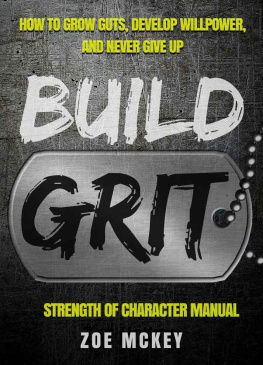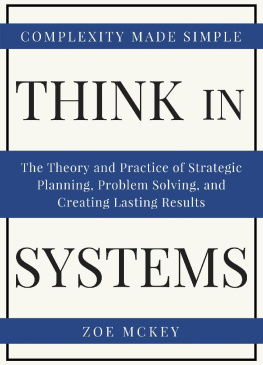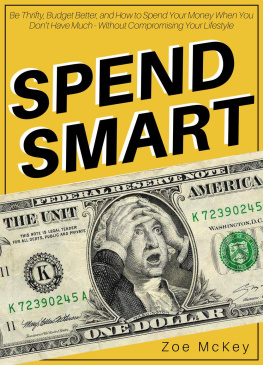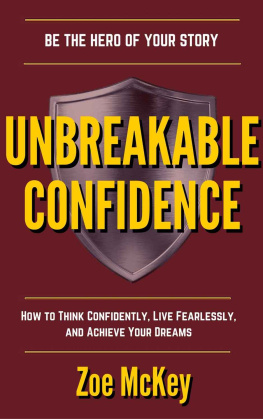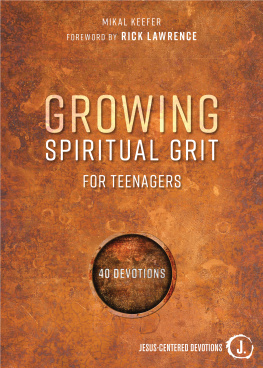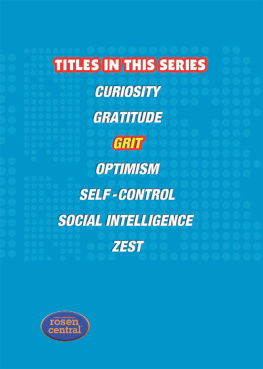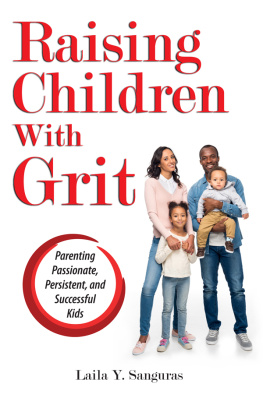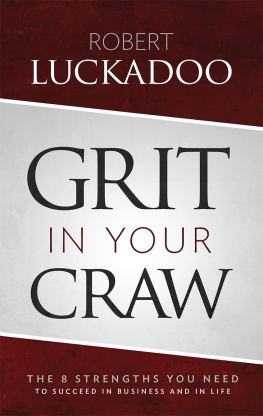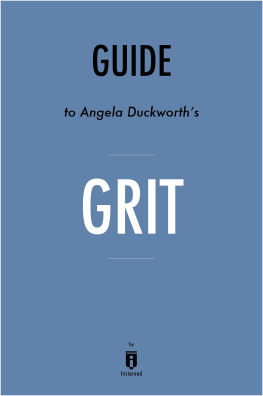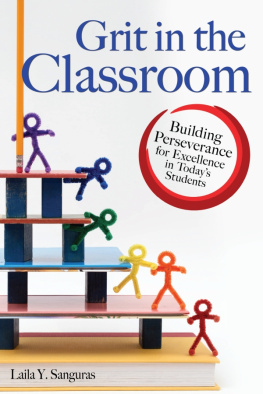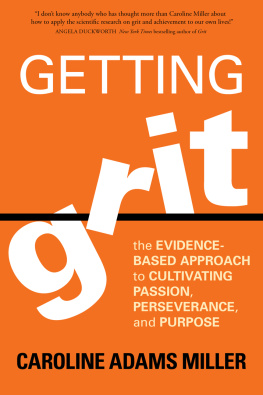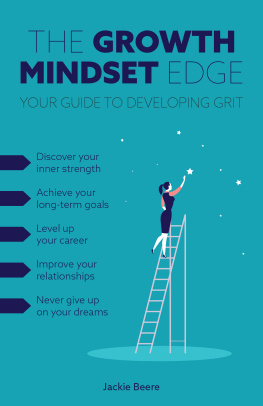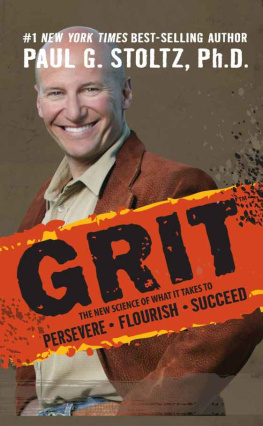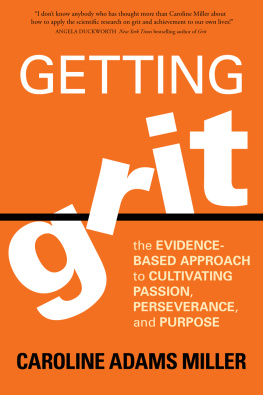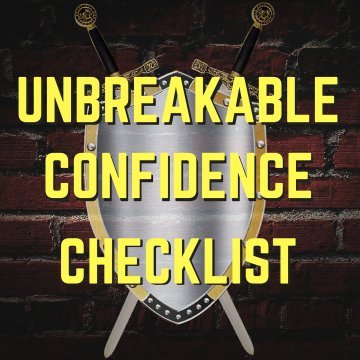Pre-GRIT
This book is not about what will happen after your big goals are reached. Thats the happily ever after. This is the road that will lead you there. It doesnt go down the highway of your happy ending, but handles all those curvy, sneaky, bumpy passages life flings in front of you all of a sudden when they are least expected. Optimally, when people are heading towards a goal, they are more or less aware of what the potential main issues might be, so preparations can be made to avoid them.
BUILD GRIT is a book that arms you against those unexpected events. It foreshadows the kind of incidents that can disturb your well-prepared plan and teaches you how to react quickly and efficiently to them.
This book offers the advantage to not only learn and acquire crisis management techniques but also a broader perspective of the unexpected difficulties people encounter in everyday life. These kinds of problems can be put on a "potential threats" list, and a complex defensive mechanism can be established. Overcoming a difficulty can be done much faster if you know the right answers. Primary life goals can be achieved much quicker if you do not invest time and unnecessary anxiety in solving everyday problems.
Trust me; I am not sitting at a luxurious table, blabbing on my newest MacBook. I didnt grow up with a silver spoon in my mouth. After my relatively peaceful early years, I went through a lot of adversity and personally learned all these lessons the hard way.
When I was seven, my mother became gravely ill. By the time I was nine, my family had lost all their fortune. At fourteen, I found myself alone in a foreign country, and the only thing I could count on was my parents love from a distance of 500 miles. From that day on, I had to deal with everything alone. And when I say everything, I mean it.
But I knew what I wanted, which direction to follow, and I tried to calculate the possible pitfalls. Even so, despite my efforts, I encountered new challenges. I wasnt born omniscient, so I fell into some traps again and again. It was infuriating, and I didnt understand why they kept happening. I think we all know that overwhelming feeling of helplessness when the only option would be to scream as loud as possible (without being taken away in a straitjacket).
When unfair events happen, people tend to think they are entitled to more lenient treatment from others. For example, if you have to stand in a long line at the post office, you expect that fate should be gentler with the next challenge; namely, catching the bus. If this doesnt occur, you become even angrier and more frustrated. Then you go shopping with a bad attitude, roaring at the salesperson, who rewards you with the oldest, ugliest ham. When you return home and notice it, you start spitting hellfire on life, on Fortuna, on everything.
In the meantime, you realize the day is almost gone, and you are overwrought because of all the nonsensical stress you put yourself through. You wont be able to work on the project or thesis or whichever task is on your goal highway.
The entire day was spent deflecting onto side roads. You go to bed with the thought that tomorrow will be different or the usual starting tomorrow Familiar? But as it happens, the next day you are abruptly awakened half an hour earlier than expected by the neighbors coffee machine and it makes you annoyed. Here we go again.
Yet I couldnt take time to wallow in thoughts of why me because my money and food supplies were running out quickly. Back then buses and post offices were the least of my concerns. But big problems, small problemsthe devil is in the details.
On the third day, I decided to stop fighting against my fate. I hushed my inner voice that asked why did this happen to me? What did I do to deserve it? I changed the questions.
What can I do to optimize my situation? How can I survive this period?
Introduction: The GRIT System
My GRIT System consists of 14 lessons that represent important milestones in a persons life. The qualities and abilities mentioned in each lesson, if acquired, make our lives easier, happier, and more balanced. You have to have the guts to try new approaches in your life.
But before jumping into the lessons, lets examine some examples of what grit is.
Everybody admired Sarah for her skills in drawing. She possessed a natural talent for sketching and preserving the moment of what was in front of her eyes. Admittedly not perfect, she could draw something incredible by imitating reality to a large extent. Jim, on the other hand, was a mediocre drawing artist. He was not bad but hardly could do half of what Sarah was able to do in double time. They were classmates, and both wanted admission to the University of Fine Arts.
Jim considered drawing as a passion, though Sarah, who received only positive feedback, never thought about improving her skills. When Jim realized this was indeed his calling, he subscribed to a drawing course to practice different types of illustration techniques. He didnt have Sarahs natural gift of visualizing shapes and proportions, but after a cartload of diligent practice, he developed a natural routine for them.
He learned the finer methods to make shadows more realistic. When both of them finished high school, and they applied to University of Arts, Jim was accepted with straight As, and Sarah was rejected.
Why did this happen? What was the difference? People think that an innate talent is enough for success. Indeed, it is true, those people have the advantage of skipping the first mile in a marathon, but the additional miles must be completed as well to reach the finish line.
Grit makes the difference. Sarah was always praised as being the best, so she wasnt motivated to progress. On the other hand, Jim knew he wasnt the best, but he pursued a goal of Sarahs example of excellence. In the process of growth, he caught up and overtook her. Through his deep passion of drawing, his need for training, and his long-lasting perseverance finally earned interest, and he reached his goal of entering the University of Fine Arts.
Grit is living your life as a marathon, not a 50-meter sprint. Talent doesnt make you gritty. It is rather inversely related to talentthe more you think you know or have, the less interested youll be to put in extra effort. You lay back, presuming that you already are the best of the best and wait for the glory to fall in your lap.
Persistence isnt about continuing only through the sunny days, but putting up with the rain, hailstorms, tornados, and earthquake and still not giving up. If you long for success, persistence is the guaranteed quality to ensure it. Persistent self-confident people often achieve much more than those who have the perfect educational or material background.

